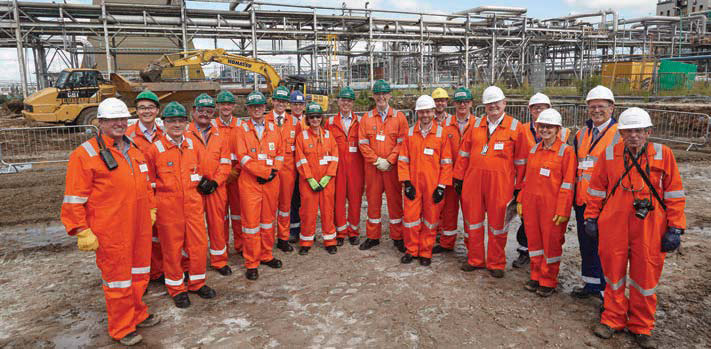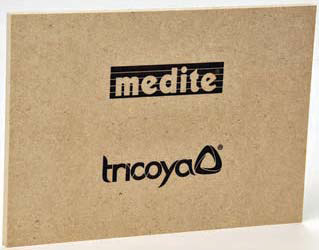Modifying markets
27 June 2018A dedicated UK production facility for Tricoya modified wood chips – the key ingredient in Tricoya modified wood panels – will open early next year. Stephen Powney reports.
WBPI sister title TTJ and other trade press made the journey to Arnhem, the Netherlands, to visit the factory of modified wood maker Accoya recently.
During the visit to the facility, which produces acetylated modified wood from New Zealand radiata pine, journalists were also given an update on the modified panel product version of Accoya – Tricoya.
Both Accoya and Tricoya are going through a large investment phase.
The former is seeing its Arnhem 40,000m3 capacity plant expanded to 60,000m3 in a 2017 investment with plans for a further phase to raise capacity to 80,000m3.
And a new plant to produce Tricoya wood elements – the modified wood fibre used to make Tricoya wood panels – is currently being constructed.
Parent company Accsys Technologies has secured €68m funding to build, operate and finance the world’s first Tricoya modified wood chip manufacturing plant in Hull, the UK. Previously, the modified chips were produced at Arnhem.
The significant increase in manufacturing capacity will allow Accsys to meet demand from the “substantial and growing markets” for Accoya and Tricoya globally.
The Tricoya chip plant is being built at Saltend Chemical Park, with funding arranged from a combination of debt and equity from BP, Medite, BGF and Volantis and debt from RBS.
Medite manufactures Tricoya Extreme MDF at its Irish plant at Clonmel, currently using modified chips from the Arnhem plant. The modification through an acetylation process enables the products to have increased durability and dimensional stability and be used in external applications.
The Hull plant, expected to be completed by early 2019, will have an initial annual capacity of 30,000 tonnes of acetylated Tricoya chips, enough to produce approximately 40,000m3 of Tricoya panel products per year.
The plant, expected to reach a breakeven position at approximately 40% design capacity, will take approximately four years to reach full capacity, after which there will be scope for expansion. The modular design of the Hull plant is expected to allow for an efficient expansion when market conditions dictate.
At the press briefing, Accoya sales manager Justin Peckham said the Hull production plant would give the opportunity to use a different wood species for Tricoya. Radiata pine is normally used for Accoya.
“Logistically, radiata pine has its challenges with a long lead time,” said Mr Peckham.
But it works well for Accoya. It arrives at Rotterdam with a 14% moisture content and the finished Accoya dries down to 6% as the chemicals react with moisture in the wood.
“Sitka spruce is not very porous and difficult to treat, so we’re not looking to use it for Accoya.”
However, Mr Peckham said, it would be suitable for use in the production of Tricoya wood elements at Hull. This modified fibre will be used to manufacture Tricoya wood panels.
Species that also work well include European alder, Nordic pine and Scots pine. Accsys CEO Paul Clegg expressed satisfaction about progress of the modified brands.
“It has been a strong finish to the year, although we have been capacity constrained with all our customers on allocation. Good demand for both Accoya and Tricoya continues to drive sales momentum.
“I am also encouraged by the continued high level of interest for potential partnerships for both Accoya and Tricoya from around the world, highlighted by the recent licence agreement with Finsa, giving us confidence that we can increase our manufactured sales to take advantage of our new capacity and our IP, for the benefit of shareholders and customers alike in the current year,” said Mr Clegg.
Accsys Technologies, which reported increased total revenue of €61m (+8%) for the year ended March 31, 2018, has a further licence agreement now in play with a panels producer. Following on from its established relationship with Medite, Finsa recently came on board as a second producer.
Finsa is sourcing its acetylated chips from the Arnhem plant initially, switching to Hull when it is complete. The combination of Medite growth and Finsa coming on board is expected to result in the Hull plant being significantly loaded when operational.

